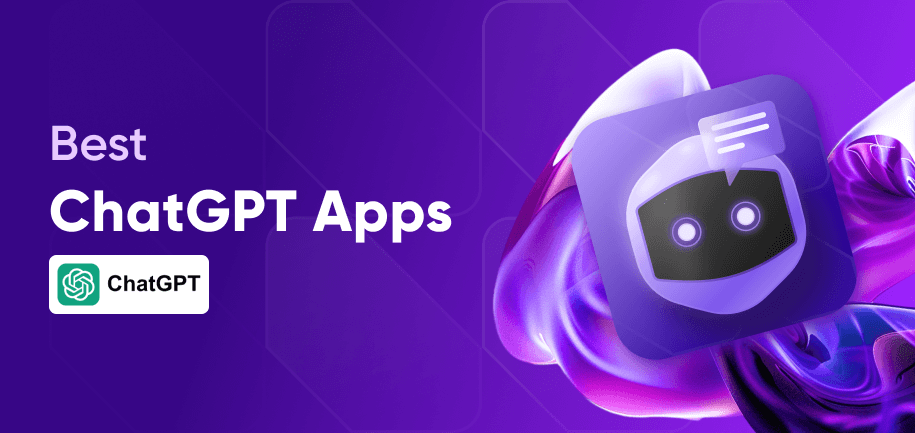Artificial intelligence (AI) and machine learning are now actively transforming how online retailers engage with customers, manage operations, and drive growth. In less than 5 years, the integration of AI in e-commerce has turned into a practical strategy adopted by businesses of all sizes looking to improve customer experience, optimize operations, and maximize conversions.
Here, we’ll explore how AI algorithms are transforming e-commerce, from product search and personalized recommendations to predictive analytics and customer service automation. We’ll also share key tools, real-world applications, and tips for adopting AI in your online retail business.
What Is AI and Machine Learning in E-commerce
At its core, artificial intelligence (AI) refers to the simulation of human intelligence by machines, while machine learning is a subset of AI that enables systems to learn and improve over time. In e-commerce, these two technologies enable businesses to analyze large volumes of data, identify patterns, and make decisions in real time.
For instance, AI models can study a customer’s browsing behavior and immediately recommend products that match their interests. Machine learning algorithms, meanwhile, can optimize inventory based on historical demand, seasonality, and trends.
Read More: How to Add AI into Magento
Key AI Use Cases in E-commerce
The most successful AI e-commerce businesses are those that strategically apply AI where it matters most. Let’s look at some of the most impactful AI applications in e-commerce:
Smart Search and Product Discovery
Most customers begin their shopping journey with a search. Yet, traditional keyword-based search engines often fall short, offering irrelevant results or failing to interpret intent.
AI platforms that optimize your search using AI use natural language processing (NLP) to mimic human understanding and deliver relevant results, even with spelling errors or vague queries. These tools allow:
Semantic search
Autocomplete suggestions
Support for synonyms and product attributes
Multi-language support
Tip: On Magento 2, plugins like Elastic Search can enhance your AI search capabilities with spell correction, language support, and promotional search rules.

Personalized Product Recommendations
Despite 85% of businesses believing that they provide personalized customer experiences, only 60% of consumers agree with this sentiment. AI can deliver highly relevant product suggestions by analyzing customer behavior, preferences, and past purchases. As of 2020, the AI recommendation engine market was valued at $1.77 billion and projected to grow at a 33% CAGR by 2028.
For instance, Adobe Sensei and Clarifai are powerful AI tools that gather behavioral insights and provide real-time tailored suggestions. As a result, repeat buyers are more likely to discover new, relevant items, increasing your average order value and customer satisfaction.
AI also enhances cross-selling and upselling by presenting products a customer is more likely to purchase, creating larger cart sizes and more loyal potential customers.
SEO for E-commerce
AI in e-commerce SEO helps automate keyword research, optimize metadata, generate structured data (schema), and even monitor rankings and competitors in real time. AI algorithms can analyze large volumes of search data to identify trends, suggest content improvements, and surface low-competition keyword opportunities tailored to product categories.
Some AI-powered platforms can also generate SEO-friendly titles, meta descriptions, and even blog content based on shopper behavior and search intent, improving relevance and boosting click-through rates.
Read More: 8 Best Use Cases of AI for SEO
Automated Inventory and Supply Chain Management
Managing inventory efficiently is vital for any e-commerce operation. With AI, store owners can forecast demand, track stock levels, and adjust procurement strategies automatically. This prevents overstocking, understocking, and the dreaded "out of stock" notices that push customers to competitors.
AI tools can monitor patterns, seasonal trends, and buying behavior to make accurate predictions. These insights help businesses allocate resources to high-performing products and optimize supply chains for better profitability and smoother fulfillment.
Intelligent Chatbots and Virtual Assistants
AI-driven chatbots can handle everything from answering FAQs to assisting with purchases in real time. According to the recent studies:
62% of consumers prefer chatbots over waiting for human service agents to answer their questions.
74% of internet users prefer chatbots when seeking answers to simple questions.
69% of consumers prefer chatbots because they offer immediate responses.
AI-assisted chatbots reduce customer service costs and are available 24/7, improving user experience. As AI-powered e-commerce tools, they also gather valuable data to further refine personalization efforts.
Read More: How GPT Chatbots Assist in E-commerce
Dynamic Pricing and Demand Forecasting
AI systems monitor competitor pricing, market demand, and customer behavior to adjust prices automatically. This ensures competitiveness without sacrificing margins.
Powerful tools like Salesforce Einstein help businesses make data-driven decisions by:
Predicting customer purchases
Optimizing pricing strategies
Anticipating customer churn
AI-Generated Product Descriptions
Writing unique, high-quality product descriptions at scale can be time-consuming, especially for stores with large or frequently changing inventories. AI-powered content generation tools can streamline this process by automatically creating tailored product descriptions based on attributes like product title, category, features, and target audience.
These tools generate SEO-friendly, persuasive copy that matches the brand’s tone of voice. This not only speeds up content production but also ensures consistency and improves search visibility.
Read More: 15 Types of Product Description Prompts [With Examples]
Fraud Detection and Risk Management
AI is also a powerful ally in fighting fraud and improving e-commerce security. Machine learning models can analyze thousands of transactions in real time to detect unusual behavior such as sudden changes in purchase history patterns, mismatched locations, or suspicious payment activity.
Tools like Kount and Signifyd use AI to continuously learn from evolving fraud tactics, reducing false declines and chargebacks while protecting your revenue and reputation.
Visual and Voice Search
Visual search capabilities, powered by AI and computer vision, are growing in importance. Instead of typing keywords, customers can upload an image to find similar products instantly. This is especially helpful in fashion, home décor, and accessories, where visual style matters more than keywords.
Apps like Google Lens and features within Pinterest and Amazon already allow customers to search by image. Integrating similar AI voice search solutions into your store enhances product discovery and provides a more intuitive, frictionless shopping experience.
Read More: How to Optimize Your Magento 2 for Voice Search
Benefits of AI in E-commerce
The benefits of AI in e-commerce are both immediate and long-term, impacting nearly every aspect of the customer journey and backend operations. Through either custom generative AI software development or ready-made solutions, businesses can enjoy:
Increased Conversion Rates – Personalized recommendations and dynamic pricing boost on-site purchases and reduce bounce rates.
Faster Response Times – Chatbots and virtual assistants offer instant 24/7 customer support, improving CSAT and lowering average response time.
Improved Inventory Turnover – AI forecasts demand accurately, helping optimize stock levels and reduce excess inventory levels.
Reduced Cart Abandonment – Personalized follow-ups and smart retargeting help recover abandoned carts, increasing sales recovery rate.
Optimized Marketing Spend – AI improves ad targeting and customer segmentation, resulting in higher ROI and lower CPA.
Shorter Delivery Times – Predictive logistics streamline fulfillment, reducing delivery delays and enhancing customer satisfaction.
Greater Customer Lifetime Value (CLTV) – Personalization and timely communication increase repeat purchases and brand loyalty.
Real-World AI in E-commerce Examples
The use of AI in e-commerce becomes even more compelling when we look at how leading companies apply these technologies. Below are several AI in e-commerce examples that demonstrate real-world success stories and practical implementations.
Amazon – The Benchmark for AI-Driven Retail
Amazon is perhaps the most cited AI-powered e-commerce example. Its recommendation engine – powered by AI and machine learning – analyzes browsing history, past purchases, and even items left in carts to personalize the shopping experience. AI also helps the company optimize its supply chain, automate warehouses with robotics, and offer dynamic pricing.
Read More: How to Sell on Amazon
Shopify – AI Tools for Merchants
Shopify has integrated AI to support small and mid-sized retailers in becoming more competitive. Through tools like Shopify Magic and Sidekick, merchants receive AI-generated product descriptions, marketing suggestions, and customer support automation.
Read More: How to Boost Shopify Sales with AI
eBay – Personalization and Fraud Detection
eBay uses AI for enhanced search relevance, image-based product discovery, and fraud detection. Machine learning models continually refine product matches and suggest relevant listings, improving customer satisfaction. At the same time, AI helps spot fraudulent listings and risky transactions, enhancing user trust and safety.
Read More: How to Sell on eBay
How to Integrate AI into E-commerce
Adopting AI might sound complex, but today’s platforms and tools make it more accessible than ever. Here's a step-by-step approach to help e-commerce businesses start using AI in e-commerce operations effectively.
1. Identify Use Cases Based on Business Goals
Begin by mapping your key challenges – such as cart abandonment, low conversion rates, or customer service delays – to relevant AI use cases in e-commerce. For instance:
Struggling with conversions? Try product recommendation engines.
Repetitive customer inquiries? Deploy a chatbot.
Inefficient pricing? Use dynamic pricing algorithms.
2. Choose the Right Tools and Platforms
Partnering with professionals in AI app development can help you integrate cutting-edge technology into your e-commerce platform. But many e-commerce platforms now offer AI-powered e-commerce features either natively or through integrations.
Shopify, Magento, BigCommerce, and WooCommerce all support apps that handle personalized recommendations, automated marketing, inventory forecasting, and more.
Read More: Best ChatGPT Apps
3. Start with One Pilot Area
Avoid overhauling your entire system. Choose one area – such as email marketing or customer service – and implement AI incrementally. Test results, gather data, and scale gradually based on ROI.
4. Use Quality Data to Train AI Models
The success of AI and machine learning in e-commerce depends heavily on data quality. Clean, structured data from your CRM, analytics, and sales tools improves AI predictions and decisions. Invest in data hygiene and governance before expanding AI use.
5. Monitor, Optimize, and Scale
Once your AI tool is active, monitor performance metrics. Does it reduce customer service time? Boost conversions? Lower costs? Use this feedback loop to optimize your AI e-commerce business and explore other AI applications in e-commerce.

Future Trends for AI in E-commerce
As AI continues to evolve, so will its role in shaping the future of digital commerce. Here are some emerging AI use cases in e-commerce and trends to watch:
Hyper-Personalization with Real-Time Data
Future AI applications in e-commerce will go beyond static recommendation engines. By integrating real-time behavioral data from various channels (web, mobile, in-store), AI will deliver micro-level personalization tailored to each shopper’s context and intent.
Read More: Magento’s Automatic Related Products
Conversational Commerce
AI-powered chatbots and virtual assistants are becoming more natural, context-aware, and proactive. With generative AI, these tools will not only resolve queries but also guide purchases, offer post-sale support, and even negotiate discounts, streamlining the entire buyer journey.
Virtual Try-ons
One innovative application is AI headshot generation, which allows users to see themselves wearing apparel, accessories, or cosmetics in real time. Retailers can integrate this technology into virtual try-ons, making shopping more interactive and confidence-inspiring, particularly useful for beauty, eyewear, and fashion sectors.
Ethical AI and Data Transparency
As consumers become more data-conscious, businesses must ensure that their use of AI in e-commerce is transparent, ethical, and compliant with regulations like GDPR and CCPA. Future-ready companies will prioritize trust and accountability alongside innovation.
Read More: Top 10 AI Tools for E-commerce
Summing Up
Implementing AI doesn’t require a massive investment upfront. With accessible tools, defined goals, and high-quality data, any business – large or small – can start using AI in e-commerce to improve performance and customer satisfaction. The key lies in identifying the right AI use cases in e-commerce, starting small, and scaling smart.
The future of e-commerce promises even more powerful, efficient, and personalized shopping experiences. Start integrating these tools into your internal workflows, shopping journeys, and supply chain for long-term success in the online retail market.
Frequently asked questions
AI can’t replace e-commerce but enhances it by automating tasks, personalizing user experiences, and improving efficiency. Human strategy and creativity are still vital for brand building, trust, and innovation.
AI in e-commerce is growing rapidly, with the global market projected to exceed $16 billion by 2030. This growth is fueled by demand for automation, personalization, and improved customer experiences.
AI applications include product recommendations, chatbots, visual search, fraud detection, inventory forecasting, dynamic pricing, and customer segmentation—streamlining operations and boosting engagement.
To integrate AI, identify key areas like search, personalization, or support. Use AI-powered tools or platforms, ensure data quality, and test results. Partner with tech experts for seamless deployment and scaling.




















